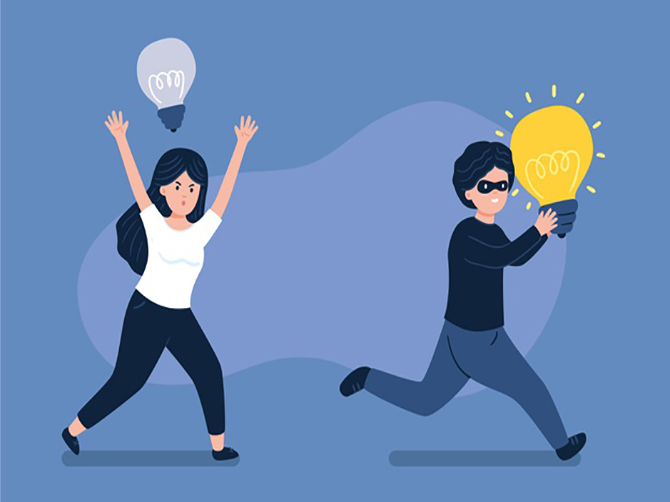Copyright Registration
Copyright is a legal right of creators, be it film producers or music directors or other artistic creators. A registered copyright legally protects the creator's idea and work, providing him exclusive ownership to reproduce, distribute, replicate, adapt or lend his work. In India, a copyright is governed by the Copyright Act, 1957 wherein the owner's legal rights, responsibilities of other parties and penalties on violation are thoroughly mentioned.
A copyright can be registered for both published and unpublished works, and it is binding for the entire lifetime of the author.
What can be registered for Copyright Protection?
Any artistic content that is original, unique and tangible is eligible to be registered for Copyright Protection.
By originality and uniqueness, it is meant that the work should be a product of your imagination, skill, labor and expertise. It must, in no way or form, be an imitation or replication of something that already exists.
A tangible content signifies any idea that has been brought forth to life, that is a visible and materialistic proof which can be copyrighted. If you wish to protect the originality of your idea then you must have a complete written blueprint as proof.
Benefits of Copyright Protection
A registered copyright ensures that the credibility of one's creation is protected. In the absence of copyright protection, an original work can be easily exploited without paying any due royalty or remuneration to the author.
Once a work is copyrighted, it is then published in a public record. This publicly establishes the author's ownership, and in case of any infringement, the author can easily sue the violators to claim statutory damages.
The biggest benefit of a Copyright Protection is that it protects the economic rights of the author by permitting him to publish any by-products or derivatives of his work for commercial purposes, and also by providing him full control over distribution. This gives the author the freedom to modify his original work as well as generate profit through distribution.
Additionally, Copyright Protection provides moral rights to the author by identifying them as the author of a certain field, also known as paternity right. They are also entitled to the integrity right, which states that they can object to the misuse, distortion, alteration or modification of their work, and further take legal action against the infringers under Copyright Protection.
